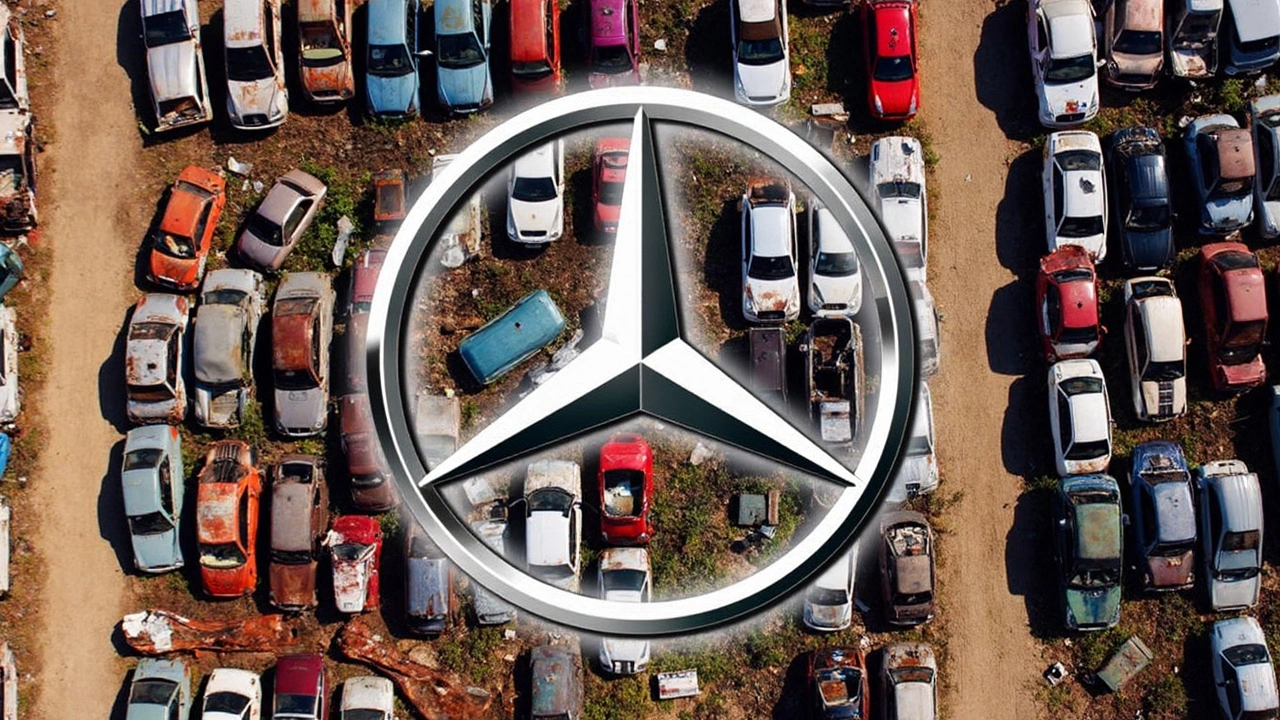In a stunning development, the European Union has slapped fifteen major automakers and the European Automobiles Manufacturers’ Association (ACEA) with a massive €458 million ($495 million) fine. This hefty penalty comes after a shocking revelation of a 15-year recycling cartel operated by these industry giants. At the forefront of the highest fines are Volkswagen, Stellantis, and Renault-Nissan, who have been hit with fines of €127.7 million, €74.9 million, and €81.5 million, respectively.
Volkswagen’s substantial fine highlights the severe penalties imposed, just like Renault-Nissan and Stellantis. Other notable companies hit include Ford, which faces a €41 million charge, alongside Toyota, Hyundai/Kia, Jaguar Land Rover, Opel, BMW, and many more. These fines come as a result of an illegal agreement that distorted the recycling efforts across the automobile industry.
The Role of Mercedes-Benz and ACEA
Mercedes-Benz played a pivotal role in unraveling this conspiracy. By alerting the regulators, they managed to skirt a fine that would have been to the tune of €35 million. This cooperation underscores the 'snitching' mechanism often seen in large-scale investigations. Essentially, Mercedes blew the whistle on longstanding practices that contravened EU Directive 2000/53/EC, which requires the free disposal of end-of-life vehicles and transparency in recycling processes.
ACEA, the facilitator of these shady dealings, organized meetings to coordinate actions among the cartel members. Through these meetings, sensitive agreements were forged to prevent compensating car dismantlers adequately and obscure information about recyclability in new vehicles. This not only breached regulations but also stifled the market's shift towards more eco-friendly motoring choices.
Repercussions and Leniency
EU Executive Vice-President Teresa Ribera didn't mince words, accusing these companies of undermining sustainable practices and consumer choice. In a bid to restore justice, the EU has allowed affected parties to seek damages from the involved parties. Importantly, some companies such as Honda, Mazda, Mitsubishi, and Suzuki found slight reprieve with reduced penalties due to their minor roles in the cartel. Additionally, Stellantis, Ford, and Mitsubishi gained further leniency by cooperating with the investigation.
Adding a layer of intrigue, the fines come with a 10% reduction for the companies that admitted their wrongdoing, signifying the EU's strategy to encourage transparency and self-regulation within the industry. As this high-profile case concludes, it marks a crucial win for consumer protection and environmental sustainability, shedding light on the dark corners of the automotive recycling industry.
